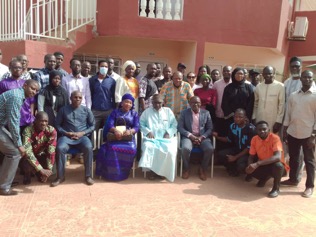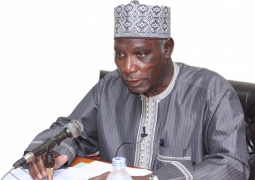
The objective of the action plan is to increase the deployment of bioenergy technologies in the country and enhance the production of biofuels to meet the country’s energy needs.
Speaking during the opening held at the Baobab Hotel in Bijilo, the permanent secretary at MOPE, Mrs. Amie Njie-Joof, underscored the importance of the validation, saying it’s the first time for the country to validate a national document that clearly outlines the baseline and proposes measures to be taken to develop the bioenergy sub-sector, which is currently underdeveloped and unregulated.
She said: “While the use of renewable energy is advancing rapidly in the ECOWAS region due to consistent efforts and investment, biomass is still largely used in the member states including The Gambia.”
PS Njie added that in The Gambia, biomass (firewood and charcoal) is the most important energy source for most households, as it contributes to over 90% of the total domestic energy needs in the country. She buttressed that in 2018, it was estimated that 55% of residential energy consumption in The Gambia is from firewood, 11% from charcoal, 32% from electricity and 2% from other fuels including LPG.
“The high dependence on biomass, even with the development of improved biomass technologies, contributes to deforestation, degradation of soil quality and reduced biodiversity. Also, biomass use at the household level is an important source of indoor air pollution which causes respiratory and eye-related problems,” PS noted.
Dr. Simeon K. Koffi, executive director of ECOWAS Regional Competitive Authority (ERCA), who delivered his statement on behalf of the executive director for ECREEE, said increasing renewable energy sources in the energy mix is one of the main objectives of the development of the energy sector in the ECOWAS region, which is in line with sustainable development.
He reiterated that over 90% of households depend on firewood for basic cooking, saying the effects are negative as the felling wood, its transformation and utilisation are inefficient and unsustainable.
“These lead to health risks associated with smoke produced from inefficient stoves, forest deforestation leading to desertification as a result of unscrupulous management practices and hence environmental degradation.”
He therefore indicated that adequate preparation must be made to sensitise and inform the ECOWAS population on the opportunities that exist in sustainable management, transformation and utilisation of biomass and bio-waste for cooking, heating and power generation and reduce over-dependence on woody biomass.



